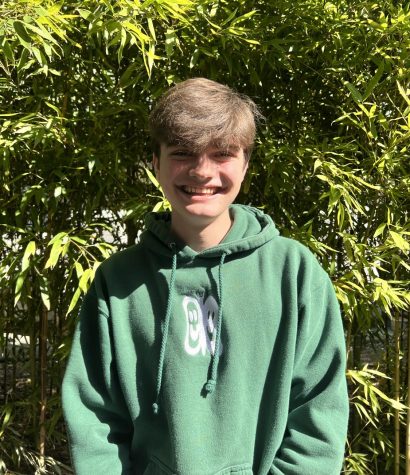We Can’t Ignore AI Any Longer
February 8, 2023
As the industrial revolution began, a small group of workers in England incited a rebellion against technology. They were mostly craftsmen, fearing that their skills would no longer be useful in modern society. They formed an organization, calling themselves “Luddites” after Ned Ludd, an expert weaver.
This group of disgruntled workers began their attack against factories and employers by breaking and damaging machines. While the workers were quickly shut down, their legacy stands to this day. The word “Luddite” is now used to describe someone who is especially averse to technology, and it can often be derogatory.
Technology continues to advance relentlessly , with every science-fiction, dystopian, seemingly impossible feat just on the horizon. Humans stepped foot on the moon. We’ve harnessed the power of the atom and photographed black holes. We are immunized against diseases that used to kill millions. We regularly interact with people thousands of kilometers away from us.
While science may seem to promise nothing but reward, we must be vigilant in recognizing the very real dangers that technological advancement brings. We must consider the environmental damage of human activity, rising rates of obesity, suicide, and depression, as well as the danger of weapons of mass destruction.
The current focus on AI chatbots is natural given their potential for massive societal change. These tools can mimic natural conversation, write impressive code, and give detailed information about almost anything. But there are three main dangers of AI chat tools: misinformation, rising unemployment, and unethical behavior.
These tools could be used to create fake social media posts and spread false information to sway public opinion or affect democratic elections. Even a small group of individuals now has the tools to release huge amounts of compelling text onto the internet to suit their political or ideological agendas. It remains to be seen how AI will fully impact democratic elections through social media bots.
A second concern is that of employment. Productivity will undoubtedly increase in software engineering, customer service, and data entry. These tools will be able to perform these tasks at a much cheaper rate, causing widespread job displacement. This will necessitate large retraining programs to aid in the transition toward more uniquely human jobs.
In addition to the potential for misuse and impact on employment, there are also concerns about the ethical implications of AI chat tools. These tools are designed to generate text that is indistinguishable from human-written text, which raises questions about accountability and responsibility. For example, if an AI chat tool is used to spread hate speech or engage in online harassment, who is responsible for those actions? It is important that clear guidelines are established for the use of these tools and that there are consequences for their misuse.
But there are three main dangers of AI chat tools: misinformation, rising unemployment, and unethical behavior.
Let’s not be Luddites on this issue. Technology will come, and we can choose to fight, or work constructively so that we can use these marvels of human creativity and knowledge for our own benefit. Technology that took us to the moon has led to all kinds of advancements in daily life including GPS, weather forecasting, and even memory foam mattresses. Understanding the atom has brought stable power, safer food through irradiation, and accurate medical diagnoses from radiology. Of course, these discoveries have also brought nuclear disasters, space pollution, and mass government surveillance.
No one can tell us exactly what will happen with AI chat tools, but we should keep an open mind, considering potential benefits to society, while also staying skeptical and cautious. Artificial intelligence is real, and it is most certainly here. In fact, it is right here in this essay. One paragraph was written completely by OpenAI’s ChatGPT program in less than 30 seconds. Can you tell which one?





















Sara S • Jun 1, 2023 at 8:55 AM
As a student who also uses AI tools in order for me to gain information, seek inspiration, and in general are very reliant on it, this article made me realize that AI could be scary. The last sentence where it mentioned one of the paragraphs used ChatpGPT made me think about how much technology has advanced to the point it is hard to distinguish between human and AI writing. I also agree about AI being used to spread hate speech and I worry about how the future generation will deal with cyberbullying with AI being incorporated.